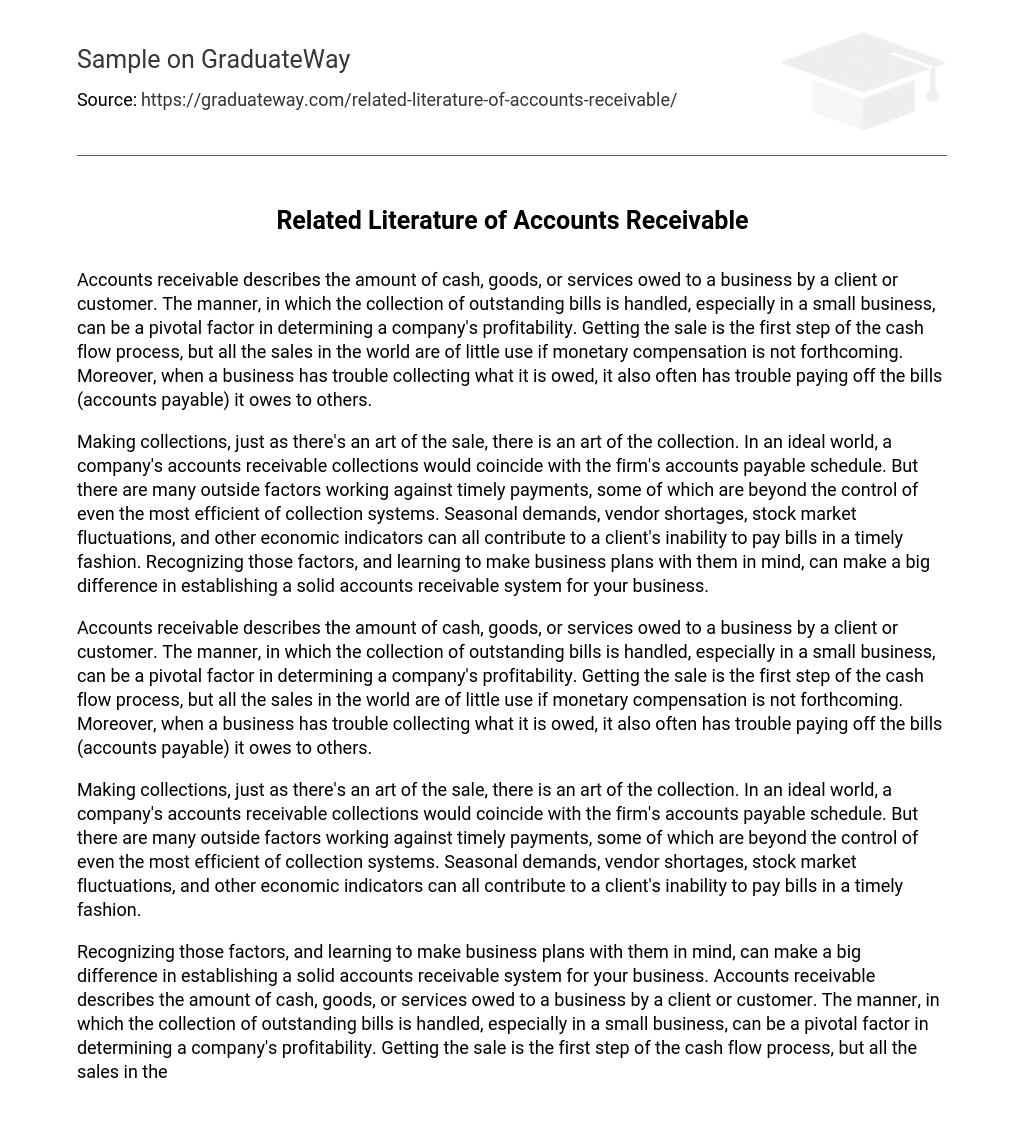Accounts receivable, which refers to the cash, goods, or services that clients or customers owe a business, greatly affect small businesses’ profitability. Effective management of unpaid invoices is vital for maintaining a steady cash flow. Even though making sales is important, it loses its value if payments are not received. Moreover, encountering difficulties in collecting outstanding debts can result in challenges when settling the company’s own unpaid bills (accounts payable).
Making collections and making sales are both art forms. It is ideal for a company’s accounts receivable collections to align with its accounts payable schedule. However, external factors can occasionally lead to payment delays, despite having efficient collection systems in place. Seasonal demands, vendor shortages, stock market fluctuations, and other economic indicators can all hinder clients from paying bills on time. By acknowledging these factors and incorporating them into business plans, a robust accounts receivable system can be established for your business.
Accounts receivable is the total amount of money, goods, or services that a business is owed by its clients or customers. How outstanding bills are collected can greatly affect small businesses’ profitability. While making a sale initiates the cash flow process, it becomes useless if payment is not received. Additionally, difficulties in collecting payments can lead to challenges in settling debts owed to others, known as accounts payable.
When it comes to making collections, there is an art of the sale as well as an art of the collection. Ideally, a company’s accounts receivable collections would align with its accounts payable schedule. However, external factors can sometimes delay payments, even for efficient collection systems. Seasonal demands, vendor shortages, stock market fluctuations, and other economic indicators can all contribute to clients being unable to pay their bills on time.
Incorporating the understanding of these factors into your business plans can greatly impact the development of a dependable accounts receivable system for your company. Accounts receivable pertains to the unpaid cash, goods, or services owed by clients or customers. The collection of unpaid bills is crucial in determining profitability, especially in small businesses. Although making a sale initiates the cash flow process, it is pointless without prompt monetary compensation.
Furthermore, businesses that struggle to collect their owed amounts often face challenges in paying off their accounts payable. Similar to the art of making sales, there is an art to collecting payments. Ideally, a company’s accounts receivable collections would align with their accounts payable schedule.
Despite the control of efficient collection systems, there are numerous external factors that hinder timely payments. These factors include seasonal demands, vendor shortages, stock market fluctuations, and other economic indicators. All of these can contribute to clients being unable to pay bills on time. It is essential to acknowledge these factors and incorporate them into business plans to establish a reliable accounts receivable system for your business.





